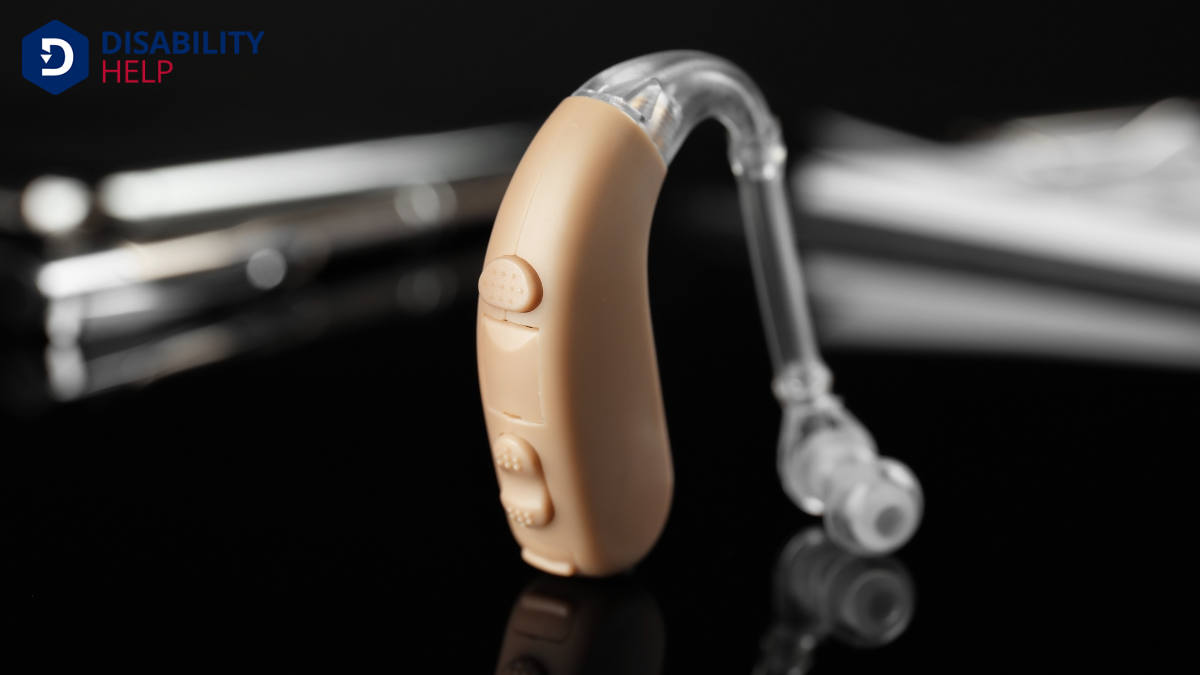When you visit a disability doctor, you might wonder about the questions they'll ask to understand your condition. They'll likely start by exploring your medical history, asking about previous diagnoses and treatments. You'll need to describe your symptoms, how often they occur, and how they affect your daily life. Questions about your mobility, work history, and mental health can also arise. Curious about how these questions shape your care and prognosis?
Key Takeaways
- Doctors inquire about the patient's detailed medical and family history to understand past health issues.
- Patients are asked to describe the nature, frequency, and intensity of their symptoms.
- Questions about walking ability and the use of mobility aidsDevices designed to help individuals move around more easily, such as canes, walkers, or wheelchairs... help assess the patient's mobility.
- Doctors explore the patient's social support network to tailor the care plan.
- Patients are asked about their ability to perform daily activities and any functional limitations.
Understanding Your Medical History
Understanding your medical history is an essential step in your journey with a disability doctor. It helps them grasp how past health issues might shape your current condition.
You’ll need to provide detailed information about previous diagnoses, treatments, and surgeries. Sharing this history allows your doctor to see patterns and make informed decisions about your care.
They're interested in understanding how your health has evolved over time, so don’t hesitate to include any relevant family medical history. This context is significant in crafting a tailored treatment planA detailed plan developed by healthcare professionals to treat a specific health condition, outlinin....
Detailing Your Symptoms

When describing your symptoms to a disability doctor, how can you guarantee clarity and completeness?
First, be specific about what you’re experiencing. Describe the symptoms' nature, frequency, and intensity. Don’t just say you’re in pain; specify where it hurts, how often, and how severe the pain is on a scale. Use clear language to convey your experience accurately.
Next, chronologically outline when the symptoms began and any changes over time. Mention triggers or activities that worsen or alleviate your symptoms.
It’s essential to express how these symptoms impact your life and functionality. By being thorough and precise, you help the doctor understand your condition better, ensuring they've all the necessary information to assist you effectively.
Assessing Your Daily Activities
How do your daily activities reflect the limitations imposed by your condition? When discussing your routine with a disability doctor, describe how your condition affects tasks like dressing, cooking, or managing personal hygiene.
Be honest about the challenges you face and what adaptations you’ve made. Do you need help with certain tasks, or do you avoid them altogether?
Share any difficulties you experience with remembering, focusing, or completing chores. The doctor wants to understand how your condition impacts your independence and daily living.
Consider if fatigue, pain, or other symptoms slow you down or prevent you from participating in activities you once enjoyed. Your insights provide a clearer picture of your needs and the support necessary to improve your quality of life.
Evaluating Your Mobility
Can you walk without assistance, or do you rely on mobility aids like a caneA mobility aid used to assist with balance and walking. or wheelchair? Evaluating your mobility is essential for disability doctors to understand your physical limitations.
They ask specific questions to assess how your condition affects your movement. Expect inquiries about:
- Distance: How far can you walk without needing to stop and rest? This helps gauge your stamina and endurance.
- Terrain: Can you navigate different surfaces like stairs or uneven ground? This determines your ability to manage varied environments.
- Pain and Balance: Do you experience pain or balance issues while walking? These factors can greatly affect your mobility and overall safety.
These questions help doctors understand your mobility challenges, ensuring they provide the necessary support and resources.
Exploring Your Work History

Understanding your physical limitations is just one piece of the puzzle; examining your work history is another critical aspect.
Disability doctors need to know the types of jobs you've held and the specific duties involved. They’ll ask about the skills each job requires and if your condition affected your performance.
It’s important to describe any challenges you faced at work, like difficulty standingThe legal right to bring a lawsuit, which requires that the individual bringing the suit has a direc... for long periods or handling stress. Be ready to discuss any changes in your responsibilities or if you'd to stop working altogether.
Doctors will consider how your past roles relate to your current abilities. This helps them assess how your condition impacts your employability, ensuring they've a thorough view of your situation.
Discussing Your Treatment Plan
Why is discussing your treatment plan with disability doctors so important? It guarantees your care aligns with your needs and helps the doctor understand your medical history. Engaging in this dialogue can lead to a more tailored approach, improving your overall well-being.
Here’s how discussing your treatment plan can benefit you:
- Clarification: You can clarify any questions about medications or therapies, guaranteeing you fully understand your treatment.
- Feedback: Sharing your experiences with the treatment helps the doctor adjust it if necessary, making it more effective.
- Compliance: Understanding your treatment plan increases your likelihood of following it, which can lead to better health outcomes.
Analyzing Your Mental Health
How often do you take the time to analyze your mental health? It's essential to reflect on your emotional well-being, especially when preparing for a disability evaluationThe process of assessing an individual’s physical or mental impairments to determine eligibility f....
Doctors will ask questions to understand your mental state, focusing on your mood, thoughts, and daily functioning. They might inquire about your ability to handle stress, your sleep patterns, or any feelings of anxiety or depressionA mental health condition marked by persistent feelings of sadness and loss of interest.. It's important to be honest and open, as this will help them assess your needs accurately.
Consider keeping a journal of your mental health experiences. This can provide valuable insights and help articulate your feelings during consultations.
Identifying Any Assistive Devices

When discussing assistive devices with your doctor, you'll want to mention the types of devices you use and how often you rely on them.
It's important to share any challenges you face with these devices, as this can guide your doctor's recommendations.
Understanding these aspects helps in creating a tailored plan to support your needs effectively.
Types of Devices Used
Assistive devices play an essential role in enhancing the quality of life for individuals with disabilities. When discussing your needs with a disability doctor, they'll likely ask about the types of devices you use. Understanding these can help them provide better care.
Here are three common types:
- Mobility Aids: These include wheelchairs, walkers, and canes, helping you move around more easily and safely.
- Communication Devices: These assistive technologies, like speech-generating devices, support those with speech impairments in expressing themselves clearly.
- Daily Living Aids: Items such as adaptive utensils or dressing tools can make everyday tasks more manageable and independent.
Frequency of Device Use
Frequently, disability doctors will explore how often you use your assistive devices, as this information is essential for tailoring your care plan. Understanding the frequency of use helps doctors assess your dependency on these devices and gauge their effectiveness in supporting your daily activities.
They might ask questions like, “Do you use your wheelchair daily?” or “How often do you rely on your hearing aid?” By discussing the frequency, doctors can better understand your routine and any patterns in device usage. This insight allows them to make informed recommendations, ensuring your devices are aligned with your needs.
When sharing this information, be honest and detailed, as it directly impacts the support and resources available to you.
Challenges With Devices
While using assistive devices can greatly enhance your quality of life, challenges often arise that can hinder their effectiveness.
It's important to identify and address these issues to guarantee optimal use. Here are some common challenges you might face:
1. Fit and Comfort: Devices that don’t fit well can cause discomfort or even pain, reducing their effectiveness.
Regular adjustments may be necessary to maintain a good fit.
2. Maintenance and Repairs: Wear and tear is inevitable.
Keeping your device in good working condition requires regular maintenance.
Knowing when and where to get repairs is vital.
3. Adaptation and Training: Learning to use a new device can be intimidating.
Adequate training is essential to gain confidence and fully benefit from the device.
Understanding Your Social Support
How important is your social support network when maneuvering the complexities of living with a disability? It’s essential.
Doctors often ask about your family, friends, or community connections because these relationships can greatly impact your well-being. They want to know who helps you with daily activities or provides emotional support. Understanding this network helps them tailor your care plan.
You might feel overwhelmed, but sharing who you rely on can open doors to resources you didn’t know existed. Your social support isn’t just about physical assistance; it’s about emotional resilienceThe ability of individuals with disabilities to cope with and adapt to challenges and adversity., too.
When you face challenges, having someone to talk to or lean on makes a difference. Remember, you’re not alone, and your doctor is there to help strengthen your support system.
Exploring Your Long-term Prognosis
When exploring your long-term prognosis, your doctor will assess your functional limitations to understand how they impact your daily life.
They'll also evaluate the effectiveness of your current treatments and discuss any necessary adjustments.
Together, you can predict a realistic recovery timeline based on your progress and medical history.
Assessing Functional Limitations
Understanding how your condition affects daily activities is essential in evaluating functional limitations. Disability doctors often ask questions to gauge how your condition impacts your ability to perform routine tasks. They want to know if you can manage personal care, household chores, and work-related duties effectively.
Here’s what you might discuss:
- Daily Activities: Can you dress, bathe, and feed yourself without assistance? These tasks reveal your level of independence.
- Mobility: Do you have trouble walking, standing, or moving around? This helps assess any mobility aids you might need.
- Work-related Tasks: Are there job functions you can't perform due to your condition? This indicates how your disability might affect employment.
These insights help shape your long-term prognosis and support needs.
Evaluating Treatment Effectiveness
After examining your functional limitations, it’s important to contemplate how well your current treatments are working and what that means for your long-term health.
Are you experiencing improvements in your symptoms, or do they remain unchanged? Doctors will ask you about any side effects you might be facing and whether these treatments have met your expectations.
They’re interested in knowing if your quality of life has improved since starting the treatment. Consider if you’ve been able to participate in activities you previously couldn’t.
Evaluating the effectiveness of your treatments helps in making informed decisions about continuing, adjusting, or changing your approach.
Openly discussing these aspects with your doctor guarantees that your treatment plan aligns with your long-term health goals.
Predicting Recovery Timeline
How can you anticipate your recovery timeline when dealing with a disability? Understanding your prognosis is essential.
Doctors ask specific questions to help predict your recovery timeline. Here’s how you can prepare:
- Current Symptoms: Describe any ongoing symptoms and their impact on your daily life. This helps doctors assess your current state and any potential improvements.
- Treatment History: Share details about treatments you’ve tried, their effectiveness, and any side effects. This information guides doctors in refining your treatment plan.
- Lifestyle Factors: Discuss your lifestyle, including diet, exercise, and stress levels. These can greatly influence your recovery speed and overall health.
Conclusion
In conclusion, when you visit a disability doctor, they’ll dive deep into your medical history and symptoms, helping them understand your daily challenges and mobility. They'll ask about your work history and mental health to get a full picture of your situation. They won't overlook your use of assistive devices or the support you receive from others. By evaluating these areas, they’ll tailor your treatment plan and predict your long-term prognosis, ensuring you get the best care possible.






